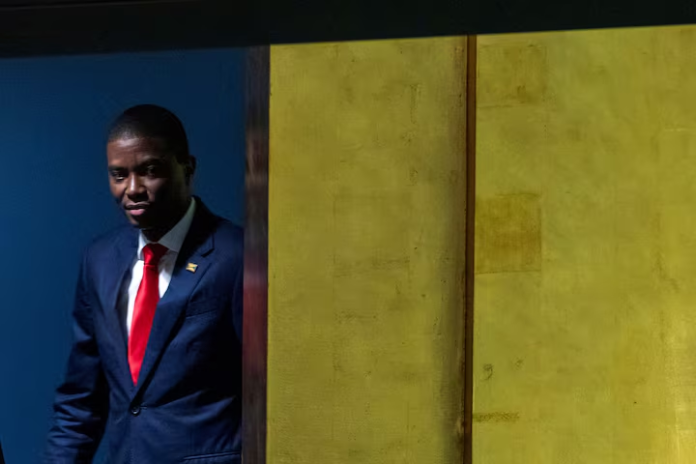Grenada’s Prime Minister Dickon Mitchell, the outgoing chairman of the Caribbean Community (CARICOM), publicly urged European Commission President Ursula von der Leyen to push for an “appropriate apology” and financial compensation for Europe’s role in the transatlantic slave trade, according to Politico.
Mitchell made the remarks during his speech at a CARICOM conference attended by von der Leyen and United Nations Secretary-General António Guterres.
I don’t mean to be impolite, but I’ll say this to you: The issue of reparations for the transatlantic slavery and the enslavement of African peoples and Black bodies is an issue we will take up with you.
He emphasised that the legacy of slavery remained a pressing moral and historical issue, warning that failing to address it risked allowing such atrocities to recur.
As long as we do not openly and explicitly reject the idea that one human being can own another human being, we run the risk of that idea taking root again somewhere, and we allow it to flourish and happen again in the world.
The transatlantic slave trade, which involved several European nations, forcibly transported millions of Africans to the Americas between the 16th and 19th centuries. Mitchell argued that the descendants of those who fought for freedom from chattel slavery have a responsibility to ensure that this history is recognised as a crime against humanity, accompanied by an official apology and reparations.
European response
In her subsequent speech, von der Leyen acknowledged the gravity of the issue, stating that “slavery is a crime against humanity.” However, she stopped short of offering an apology or addressing the call for financial compensation.
Her response highlighted the ongoing tension between Caribbean nations seeking reparations and European leaders hesitant to engage directly with the issue.
The exchange at the CARICOM conference reflects the broader global debate over historical accountability and reparations. While von der Leyen’s acknowledgment of slavery as a crime against humanity is a step forward, Caribbean leaders like Mitchell are calling for concrete actions to address the enduring impacts of this dark chapter in history.
As the conversation continues, the pressure on European nations to confront their historical roles in the slave trade and consider reparatory measures is likely to intensify. The issue remains a critical point of contention in discussions about justice, equality, and reconciliation in the post-colonial world.
